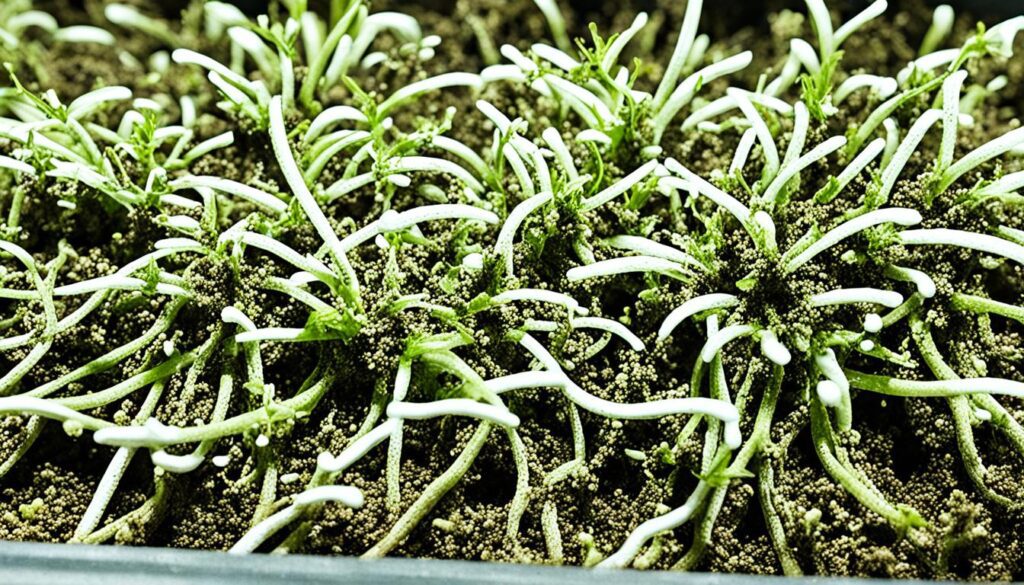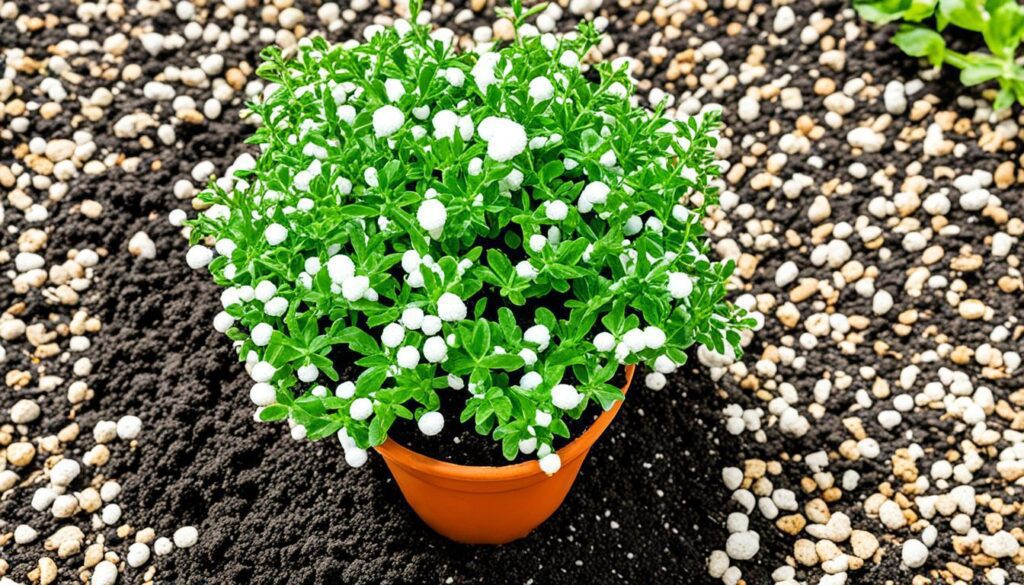How to Use Perlite in Your Garden: Benefits and Tips
Ready to up your gardening game? Perlite is a must-have. It’s a versatile and often overlooked soil booster. This simple thing can boost your plants’ health and overall growth. But, what is it exactly? And how can you use this unique material? We’re about to peel back the curtain on perlite.
What is Perlite?
Definition and Origins
Perlite is a special natural material. It comes from volcanic glass. This glass is mined and quickly heated to very high temperatures, from 1560°F to 1650°F. This makes the moisture inside turn to steam. It expands the material by 7 to 16 times its original size. The outcome is a lightweight, porous, and white substance. It’s often used in gardening and many industries.
The creation of perlite connects to obsidian, another volcanic glass. Through a process called hydration, perlite gets its unique look. The water trapped inside it turns to steam when heated. This sudden change makes perlite expand significantly. And that’s how we get the perlite used in gardening — light, airy, and able to hold moisture well.

Benefits of Using Perlite
Perlite is a fantastic addition to any garden. It does wonders for plant health and soil quality. Being a lightweight, porous volcanic glass, it can greatly improve soil. It does this by enhancing aeration and drainage.
The U.S. is leading in the use of perlite in gardening. However, its benefits reach far beyond just plants. Perlite finds its way into construction and filtration industries, too.
One great thing about perlite is that it stops soil from compacting. It boosts aeration and drainage. This creates an ideal space for roots to grow strong. It also lowers the risk of water staying too long and causing diseases.
Perlite can both hold water and allow it to drain. This makes it a perfect soil addition. Its balanced mix of moisture and air is great for plants. It ensures roots can get what they need to be healthy.
Perlite is also stable and won’t break down over time. This makes it a lasting solution for better soil. Your garden will benefit from perlite’s use for a long time.
For starting seeds, growing cuttings, or improving garden soil, perlite is key. It helps plants grow well and keeps landscapes beautiful. Every gardener should have some perlite for great results.
“Perlite is a game-changer in the gardening world, offering unparalleled benefits for soil health and plant success. As a long-lasting, chemically inert material, it’s a must-have for any serious gardener.”
Adding perlite to soil in dark, slow-drying spots helps keep roots healthy. Perlite is especially good in pots, making the soil just right for growth. Even though it has a few cons, using perlite in pots improves plant health and keeps soil good for longer.
Perlite is a natural mineral that provides more air in the soil. Vermiculite keeps the soil from getting too wet, which can harm roots. When your seedlings are ready for a bigger home, use a mix of coco coir or peat moss, compost, perlite, and vermiculite. The mix ratio changes depending on what the plants need.
“Proper watering is essential for plant health; frequency depends on the plant type and size, with most plants preferring the media to be ‘just moist’ at all times.”
For very fragile clippings, just lay them on the perlite’s surface with a bit inside. Put a lid over the container. Once you see new roots, gently move them to soil with some perlite still around them.
Using perlite boosts the chances of your clippings growing. With perlite, roots get what they need to grow strong. Try different perlite mixes and methods to see what works best for your plants.
Conclusion
Perlite is excellent for gardens. It makes the soil better for plants by improving drainage and aeration and helping roots grow well. Adding perlite to your soil will make it perform better. You can use it when starting seeds, growing cuttings, or making garden beds. Perlite is a key part of any gardener’s tool set for healthy plant growth.
Perlite has been safe to use for more than fifty years. Many studies show it’s not harmful to our health. Even workers in the perlite industry didn’t show health problems due to perlite. So, by using perlite correctly, you can make your plants thrive without worry.




Comments
Post a Comment